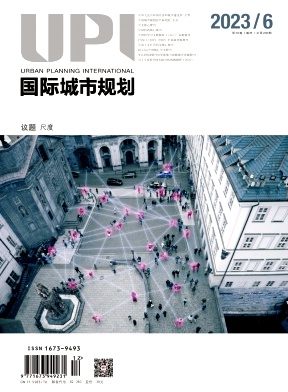Urban and Rural Land Use Planning Evolution in Modern China from the Perspective of Land Management System
引用次数: 2
Abstract
As the carrier of all living and production activities, land is the basic object and land use is the essential content of a variety of planning. Land management system directly determines a series of significant issues such as the supply of urban and rural construction land, the land use efficiency, the allocation of land value appreciation, and so on. Therefore, it influences the philosophy and implementation of planning. In China, there are diverse plans of urban and rural land use managed by multiple agencies. In the early years after the foundation of the PRC, land was allocated by plans with no charge. After the Reform and Openingup, paid use of land and land market was introduced, followed up by the establishment of a land use planning system including territorial planning, urban and rural planning, and land use planning. Recently, exploration of building a unified territorial/spatial planning system is undergoing since the Third Plenary Session of the 18th CPC Central Committee. The evolution of planning manifests the modernization of state governance system, from direct control of land by the state, to the decentralized management of development rights under the separation of land ownership and use rights, to the central-local two-layer management of land development rights in the context of protecting resources and environment, all the way to the unified management of land development rights under the Ecological Civilization. On the basis of reviewing the evolution of urban and rural land use planning in the past 70 years, this paper explores the reforms of the land management system with Chinese characteristics and their impacts on urban and rural land use planning. This paper explains the evolution path of urban and rural land use planning and interprets the transition of planning focus of “construction management—asset management—resource management—ecology management”, as well as the corresponding streamlining process of governments functions.从土地管理体制看中国近代城乡土地利用规划的演变
土地作为一切生活生产活动的载体,是各种规划的基本对象,土地利用是各种规划必不可少的内容。土地管理制度直接决定着城乡建设用地供应、土地利用效率、土地增值配置等一系列重大问题,从而影响着规划的理念和实施。在中国,由多个机构管理的城市和农村土地利用规划多种多样。中华人民共和国成立后的最初几年,土地是按计划无偿分配的。改革开放后,引入了土地有偿使用和土地市场,随后建立了包括国土规划、城乡规划和土地利用规划在内的土地利用规划体系。近年来,党的十八届三中全会以来,探索构建统一的国土空间规划体系。规划的演变体现了国家治理体系的现代化,从国家对土地的直接控制,到土地所有权和使用权分离下开发权的分散管理,再到保护资源环境下土地开发权的中央-地方双层管理,一直到生态文明条件下土地开发权的统一管理。本文在回顾70年来城乡土地利用规划演变的基础上,探讨了具有中国特色的土地管理体制改革及其对城乡土地利用计划的影响。本文阐释了城乡土地利用规划的演进路径,阐释了“建设管理——资产管理——资源管理——生态管理”规划重点的转变,以及相应的政府职能精简过程。
本文章由计算机程序翻译,如有差异,请以英文原文为准。
求助全文
约1分钟内获得全文
求助全文

 求助内容:
求助内容: 应助结果提醒方式:
应助结果提醒方式:


